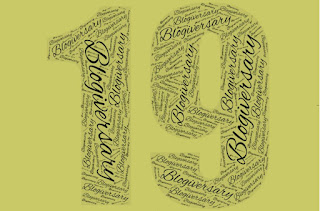- James Henry Waldo Jones--Wm. C. Cook sold him 140 acres in October of 1854 in Bedford Co., TN. JHW Jones had married Hester Ann Augusta May two years before the purchase and was just starting his family. He was a preacher in the Cumberland Presbyterian church in Obion and Weakley County, TN, where he'd relocated by the time of the 1860 Census. He was living in Wingo, Graves County, Kentucky, when he died. His son, Andrieus Aristieus Jones, moved to New Mexico and did very well. He was an educator, a lawyer, and a US Senator. As a senator, he was the chair of the Committee on Woman Suffrage.
- Ivey Phillips--a neighboring landowner SW of the land where Wm. C Cook lived in 1846. He was also a witness for Thomas B. Carlton when he deeded the land for the Liberty Meeting house.
- William Putman--Brother-in-law of Wm. C. Doubly so, William was Elizabeth's brother, and William's wife, Anna G, was Wm. C's sister. Wm. C. Cook's deposition for the State Supreme Court case of Williams vs. Putman et al. was a great find.
- Zephaniah Anglin--lived in the neighborhood with Wm. C. Cook and was also involved in the Williams vs. Putman State Supreme Court Case
- Joseph S Cook--Wm. C. Cook was the administrator of his estate. Relationship not yet determined. He is frequently confused with Davidson County, TN, Joseph Cook. Their probate files are combined in the Williamson County, TN, Archives folder. You can tell them apart if you examine each document in the file because Jos. S. Cook died without a will, and Joseph Cook of Davidson County, TN, left a very detailed will and information about his children.
- Wm G Hight--maternal 1st cousin of Wm. C. They traveled together and are listed as staying at a Nashville hotel(likely a trip to KY or a Masonic conference).
- Wm B King--His parents were neighbors of Wm. C., and his daughter married Wm. C. Cook's son. He is my 2nd Great Grandfather
- Messinah Ann Bailey--1st wife of Wm. C.'s son James Polk Cook. Wm. C. went to court with James to help secure their divorce.
- Tennessee Ferguson--step-granddaughter of Wm. C.'s son James Polk Cook through James' 3rd wife Susan Carson Ferguson Cook.
- George Evans--Wm. C. bought a pair of shoes at his estate sale
- William Gilliam--the depositions for Williams vs Putman were taken at his smith shop in Rutherford Co, TN.
- Zachariah Little--He and Wm. C. Cook were at the courthouse applying for a marriage license(Zach to marry Mary Hill and Wm. C. to marry Elizabeth Putman) on 26th Sept. 1831. They were each other's bondsman.
- John W Maxwell--put up security for Wm. C. Cook(1849)
- David Lemuel Manire--officiated Wm. C. Cook & Elizabeth Putman's marriage. My 3rd Great Grandfather.
- David Young--He bought land that Wm. C. Cook's wife received from the estate of her father, Jabel Putman. When David purchased the land, he was living in District 25 of Williamson Co. TN, and Wm. C. Cook and wife were living in Bedford County.(1837) David's wife was Elizabeth Reed(Dau of Josiah Reed & Mary Elizabeth Carson Reed)
- Althy Elmore--He and Longshore Lamb were part of a Deed of Trust where Wm. C. Cook put up livestock and household goods as collateral for $50 loan from Elmore and $38 loan from Lamb.
- Thomas B Carlton--Wm. C. Cook was a witness when Thomas deeded land for the Liberty Meeting House.
- Jonathan Vickery-- bought a saddle and a saddle blanket at the estate sale of Jos. S. Cook. (1838)
- Charles Pope--purchased 25 pounds of picked cotton at the estate sale of Jos. S. Cook. Husband of Elizabeth Smith.
- Alfred L Little--purchaser at Estate Sale of Jos. S. Cook. He married Martha Emily Pope, Charles Pope's daughter.
- Renwick Adams(R.A.) Gault--He and Wm. C. Cook were selected as jurors from District 10. (1855) He lived just north of where Wm. C. lived in 1846. A contemporary of Wm. C., he was married to Elizabeth Floyd in Williamson Co., TN(1833)
I encourage you to try this exercise with one of your own ancestors. Making a list of their Friends, Associates, and Neighbors, along with a timeline of their life, can reveal gaps in your research and highlight connections from different areas of their life you might otherwise miss. A heartfelt thank-you to all my readers and everyone who has supported and encouraged me over the years. I look forward to continuing to share my research and tell the stories of my ancestors for many more years to come.





